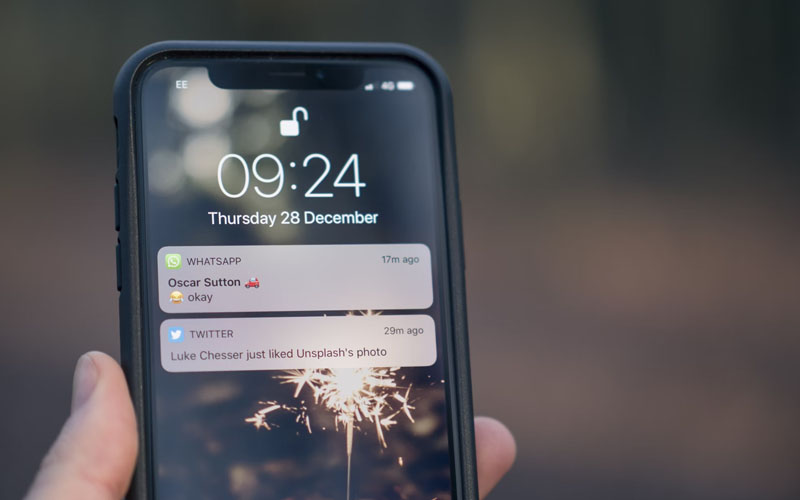Smartphones are a double-edged sword. On one hand, they connect us, make life more convenient, and help us stay organized. On the other, their constant notifications often distract us from focusing on what truly matters. If you’ve found yourself interrupted mid-task by a buzzing phone, you’re not alone.
This blog dives into the science of smartphone notifications, their effects on productivity, and simple strategies to manage them for better focus. By the end, you’ll have actionable solutions to take control of your digital habits and reclaim your time.
Understanding Smartphone Notifications and Their Impact on the Brain
Ever wonder why it’s so hard to ignore that ping or buzz from your smartphone? It’s not just your imagination—it’s science.
Why Do Notifications Grab Our Attention?
Notifications are mini dopamine hits. They light up the brain’s reward centers, which are responsible for feelings of pleasure. Every time we hear a notification, the brain releases dopamine, urging us to check our phones. This instant gratification creates a habit loop, making it almost impossible to resist.
ADVERTISEMENT
Key fact: Studies from the University of Southern Maine show that even anticipating a notification disrupts task performance. Knowing a message could pop up keeps part of our brain from fully committing to the task at hand.
The “Switching Costs” of Notifications
Frequent notifications train our brains to multitask. While multitasking might sound productive on the surface, research has found that it impacts focus and efficiency. Constant task-switching results in “switching costs,” losing valuable energy and mental clarity as we regain focus after every interruption.
According to a report by the University of California, it takes an average of 23 minutes and 15 seconds to return to full focus after an interruption. When you consider how often notifications pop up in an hour, it’s no wonder focus feels elusive.
The Double-Edged Sword of Smartphone Notifications
Smartphone notifications aren’t inherently bad. The key lies in how we interact with them. Let’s look at both sides of the equation.
How Notifications Harm Productivity
- Continuous interruptions: Notifications disrupt deep work, fragmenting your thoughts and preventing a “flow” state.
- Stress and overwhelm: The constant barrage of notifications activates the brain’s stress-response systems, making concentration harder.
- Lowered quality of work: Multitasking or divided attention reduces the depth of understanding and creativity required for complex tasks.
- Sleep disruption: Late-night notifications or endless social media scrolling can push back winding-down routines, leading to restless sleep.
How Notifications Can Enhance Productivity
- Task reminders: Calendar alerts and task management apps can keep you organized and on time.
- Priority notifications: With proper filtering, critical alerts ensure you never miss urgent communications.
- Motivation and habit building: Apps like Duolingo or workout reminders can nudge you to stick to goals consistently.
The challenge, therefore, is learning how to harness the benefits of notifications without letting them derail your focus.
Strategies for Managing Smartphone Notifications
Taking control of your notifications is simpler than you think. By tweaking a few settings and adopting mindful habits, you can regain your focus.
1. Audit Your Notifications
Start by reviewing which apps are allowed to send you notifications. Restrict notifications to only essential apps like email, weather, or calendar. You’ll be surprised by how much clutter you can eliminate.
Action step: For iPhone users, go to Settings > Notifications. On Android, go to Settings > Apps & Notifications. Turn off notifications for non-essential apps like games and promotional alerts.
2. Schedule “No Notification” Blocks
Use tools like “Do Not Disturb” (iPhone) or “Focus Mode” (Android) to schedule specific time blocks for uninterrupted work.
Pro-tip: Combine these modes with your work schedule to ensure critical focus hours are notification-free.
3. Prioritize with Notification Filtering
Many smartphones now offer customizable notifications. For instance, you can flag “high priority” senders or apps. This ensures you still receive important alerts while filtering out distractions.
4. Try Digital Detox Intervals
Commit to periods where you completely disconnect. These breaks, often referred to as “digital detoxes,” can give your mind the space it needs to recharge.
How to start: Begin small, like a 1-hour tech break during meals or right before bedtime. Gradually increase the detox time.
5. Use Apps for Focus and Screen Management
Paradoxically, some apps can help manage smartphone use better.
- Forest App: Gamifies focus by growing a tree while you’re working. Exit the app, and your tree dies.
- StayFocusd (for Chrome): Blocks distracting sites while working.
- Offtime and Freedom: Limit access to specific apps or websites during productive hours.
6. Place Physical Barriers Between You and Your Phone
Out of sight, out of mind. Place your phone in another room when working on focused tasks. Alternatively, use charging stations outside your bedroom to avoid sleep disruptions.
Bonus tip: Use an actual alarm clock (yes, they still exist) instead of your phone to help minimize morning distractions.
Case Studies and Real-Life Examples
Success Story 1: Individual Breakthrough
Anna, a freelance writer, struggled with productivity due to constant Instagram pings. By silencing notifications and scheduling her social media time post-work, she increased her daily output by 35%.
Success Story 2: Corporate Solution
A startup implemented company-wide notification protocols, encouraging employees to batch-check email twice a day instead of responding instantly. The result? Higher productivity and fewer late-night work messages.
The Long-Term Benefits of Limiting Notifications
When you manage notifications effectively, the benefits go beyond workplace productivity. Here’s what the long-term gains look like:
- Improved focus: Fewer interruptions help you build deeper concentration skills.
- Reduced stress: Less clutter and fewer distractions alleviate mental fatigue.
- Stronger relationships: By putting your phone down, you can be more present with friends and family.
- Healthier habits: Limited screen time translates into better sleep and more room for offline hobbies.
Take Back Control of Your Attention Today
Smartphone notifications don’t have to control your life. By turning off non-essential pings, scheduling focus time, and applying these strategies, you’ll find yourself more focused, productive, and calmer.
ADVERTISEMENT
Your productivity is worth the effort—start making these simple changes today to gain the focus you’ve been searching for.
ADVERTISEMENT


